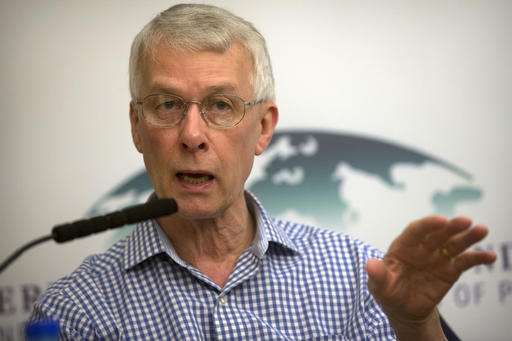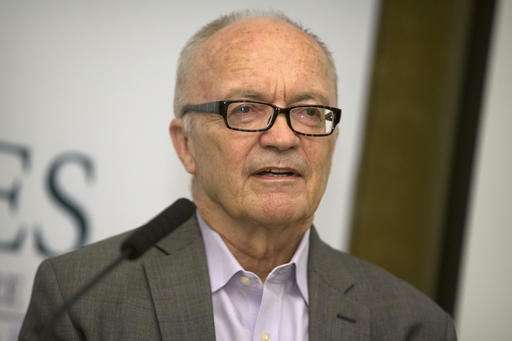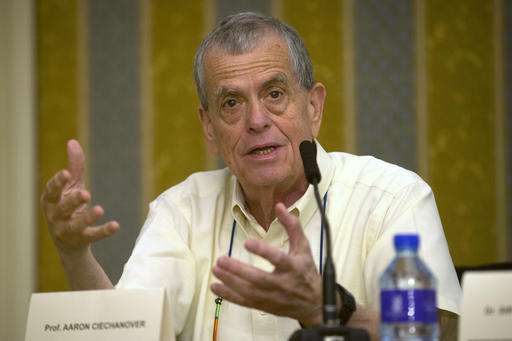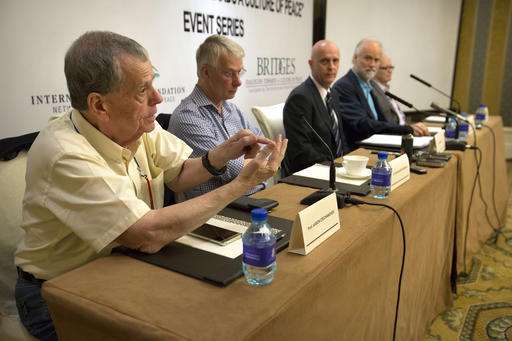Sanctions, restrictions seen impeding science in North Korea

Tightening U.N. sanctions and an inability to freely access the Internet are inhibiting the work of North Korean scientists, Nobel Prize laureates who recently visited the country said Saturday.
Medicine prize winner Richard Roberts, economics prize winner Finn Kydland and chemistry prize winner Aaron Ciechanover told reporters in Beijing that they hoped their weeklong visit to North Korea would promote further scientific and educational exchanges with the country despite its isolation.
A lack of modern scientific equipment due to years of sanctions and outdated methodologies have left North Korean scientists trailing far behind their foreign counterparts, said Roberts, who is research director at New England Biolabs in Boston.
"So this embargo is really hurting the scientists in some major ways, and I think that's a great shame," Roberts said, adding that the type of scientific diplomacy the delegation engaged in had the potential to be a "very powerful tool for diplomacy."
Roberts said that, while North Korea's tight restrictions on the global Internet prevent most scientists from collaborating with colleagues in other countries or accessing the latest scientific literature, he sensed a strong desire for more international exchanges.

"If they weren't interested in exchanges, why would they have invited us?" he said.
The delegation's visit came as North Korea's ruling Workers' Party was preparing to bestow its top title on leader Kim Jong Un, although the three said they had no contact with the country's top leadership. Activities focused on meetings with students and academics, visits to universities and research institutes, and participation in a number of talks and lectures, according to the visit's program.
While politics played a relatively small role in the visit, delegation member Prince Alfred of Liechtenstein said North Koreans they met expressed a desire for negotiations with the outside world, a peace treaty with the United States and an assurance that their country wouldn't be attacked.

North Koreans "have a willingness to become a part of the international community, but based on those three conditions," said the prince, who serves as chairman of the advisory board of the Vienna-based International Peace Foundation, which co-organized the visit.
Founding IPF Chairman Uwe Morawetz said South Korea's ambassador to Thailand, where the foundation has its Asian office, had asked him to postpone the visit, something he was unable to do because of scheduling issues.
In another sign of the visit's political sensitivity, Morawetz said the foundation was unable to attract the corporate sponsors who usually underwrite such visits, requiring the Nobel laureates to pay their own airfares.

© 2016 The Associated Press. All rights reserved.

















